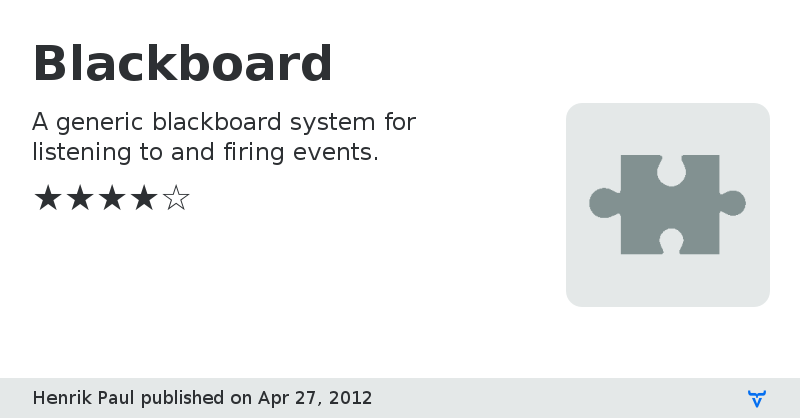Blackboard - Vaadin Add-on Directory
A generic blackboard system for listening to and firing events.
Google Collections
Wiki Article / Manual
Source Code & Example Application
Blackboard version 1.1.1
A class now can implement many Listeners
Blackboard version 1.1.2
Changed weak values to soft values. Probably consumes more memory, but doesn't lose listeners instead.
Blackboard version 1.2.0
Logging added
Blackboard version 2.0.0
- API is incompatible with eariler releases
- Notifier is removed completely
- com.github.wolfie.blackboard.Event is now an interface
- Blackboard.register() now accepts only interface-Listeners
- The example application is cleaned up
- Dependency for Google Collections is removed
Blackboard version 2.0.1
Registering an abstract Event is disallowed.
Blackboard version 2.1.0
Added support for automatically register event/listener pairs
Blackboard version 2.1.1
Added some heuristics to determining a listener method, not strictly requiring an annotation.
Blackboard version 2.2.0
it is now allowed to register one listener to handle several events